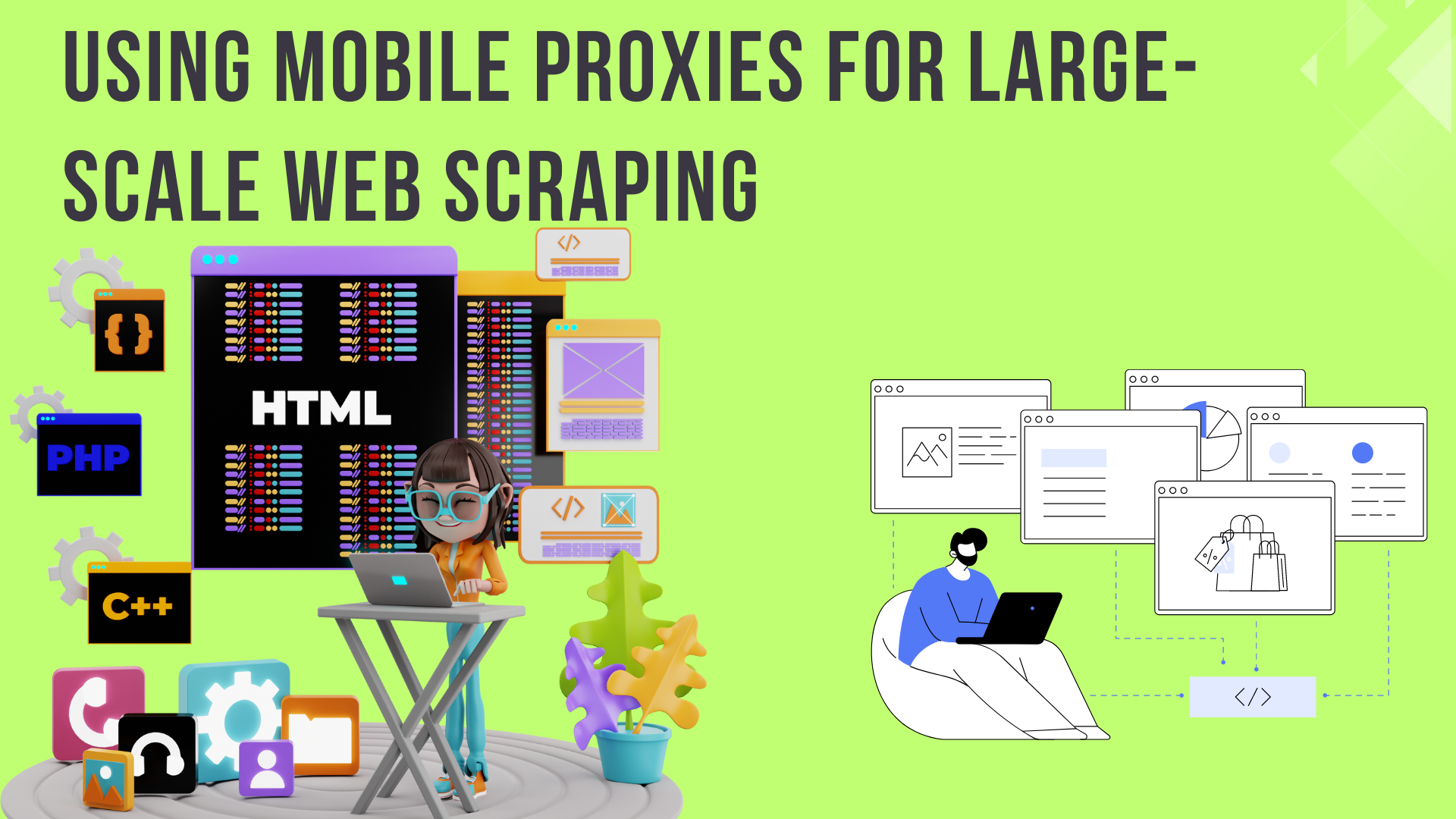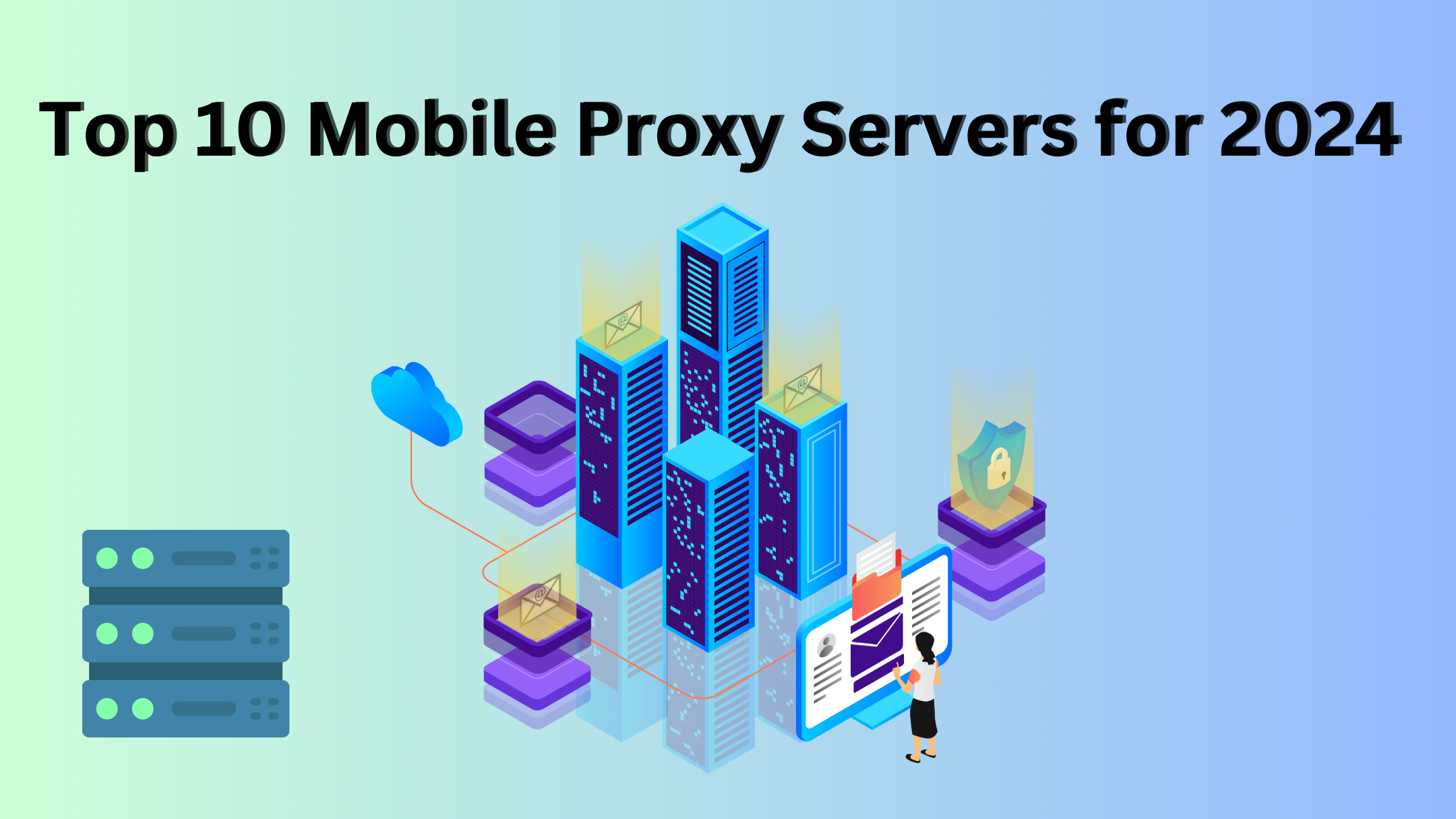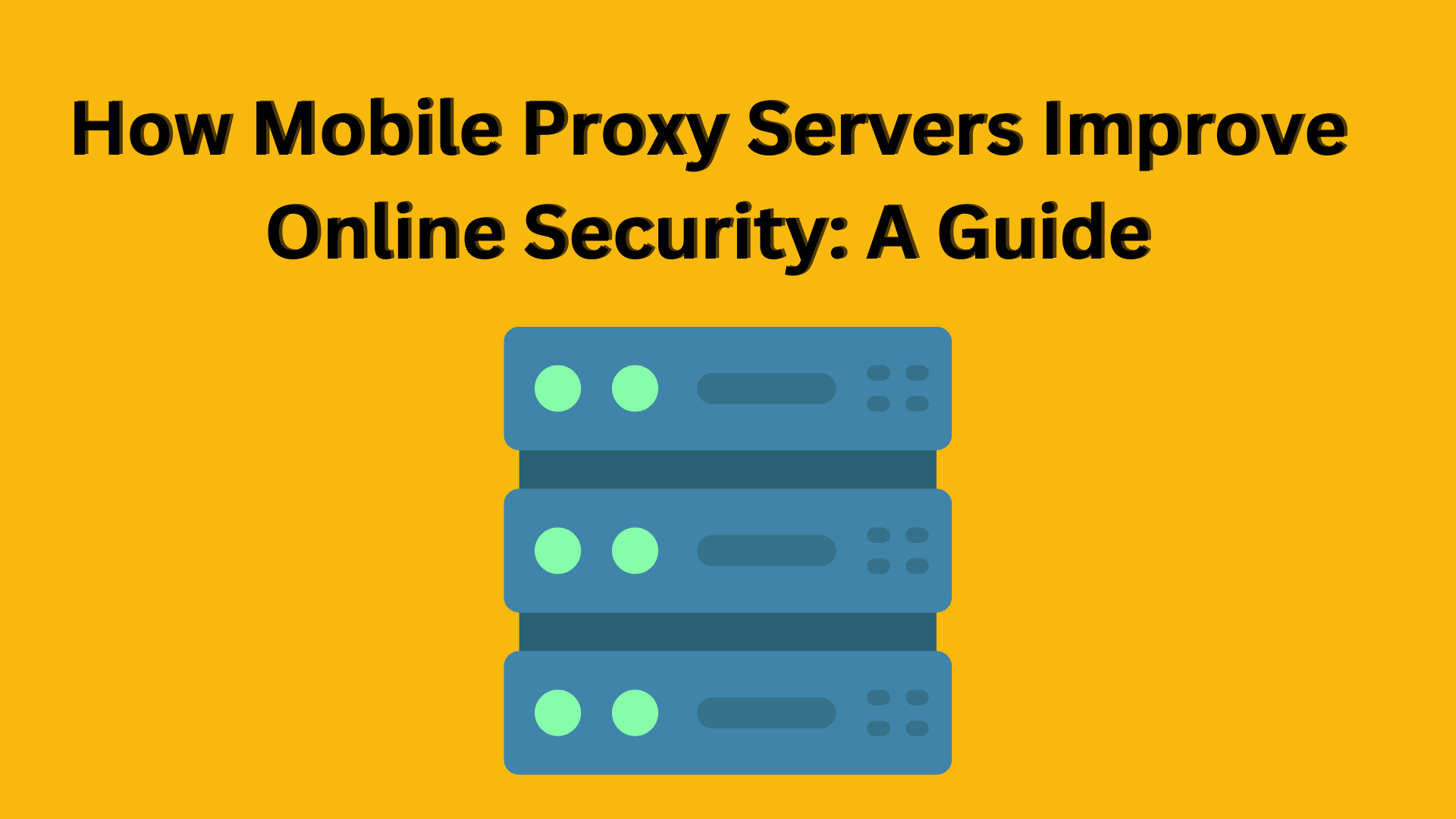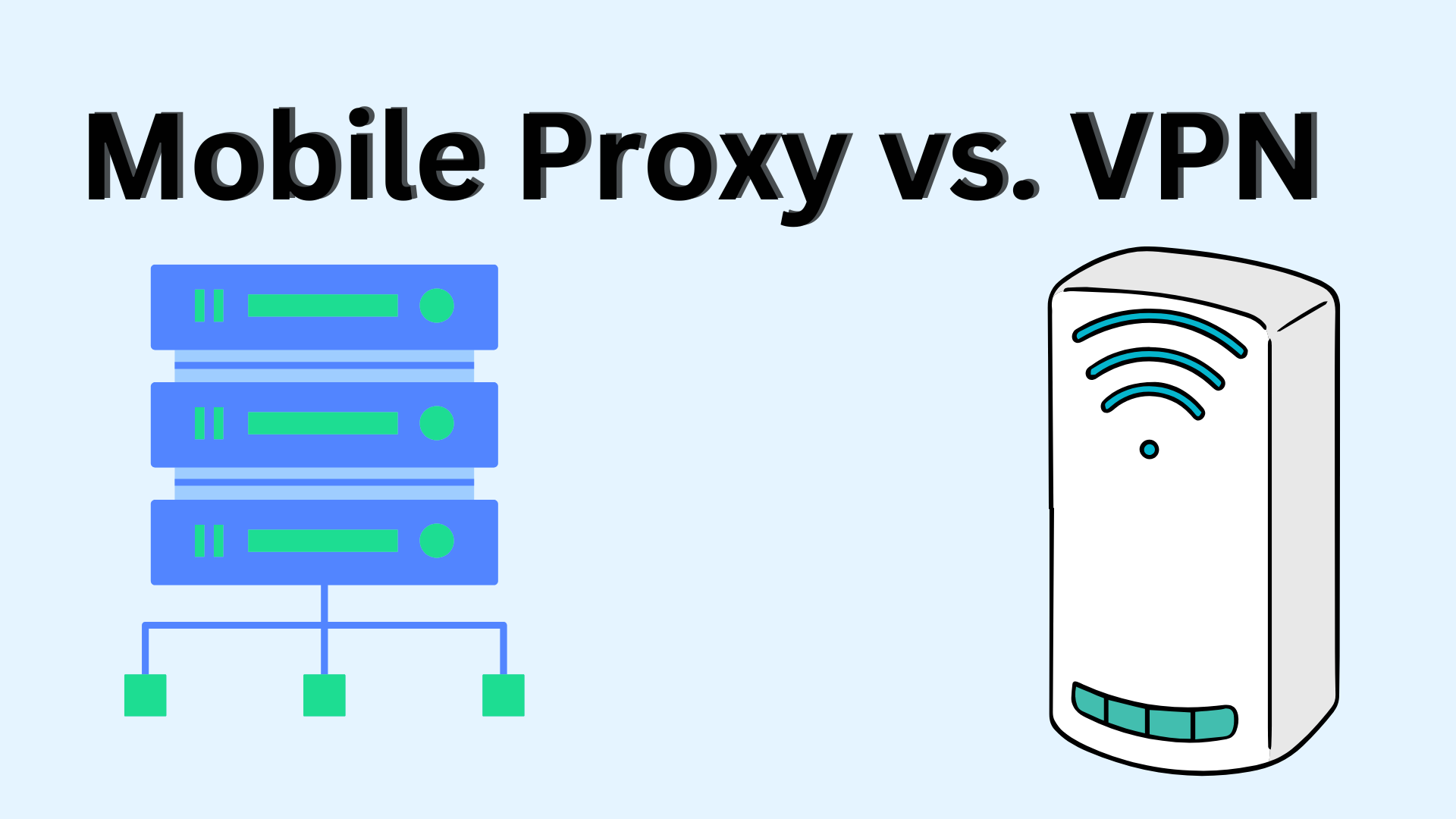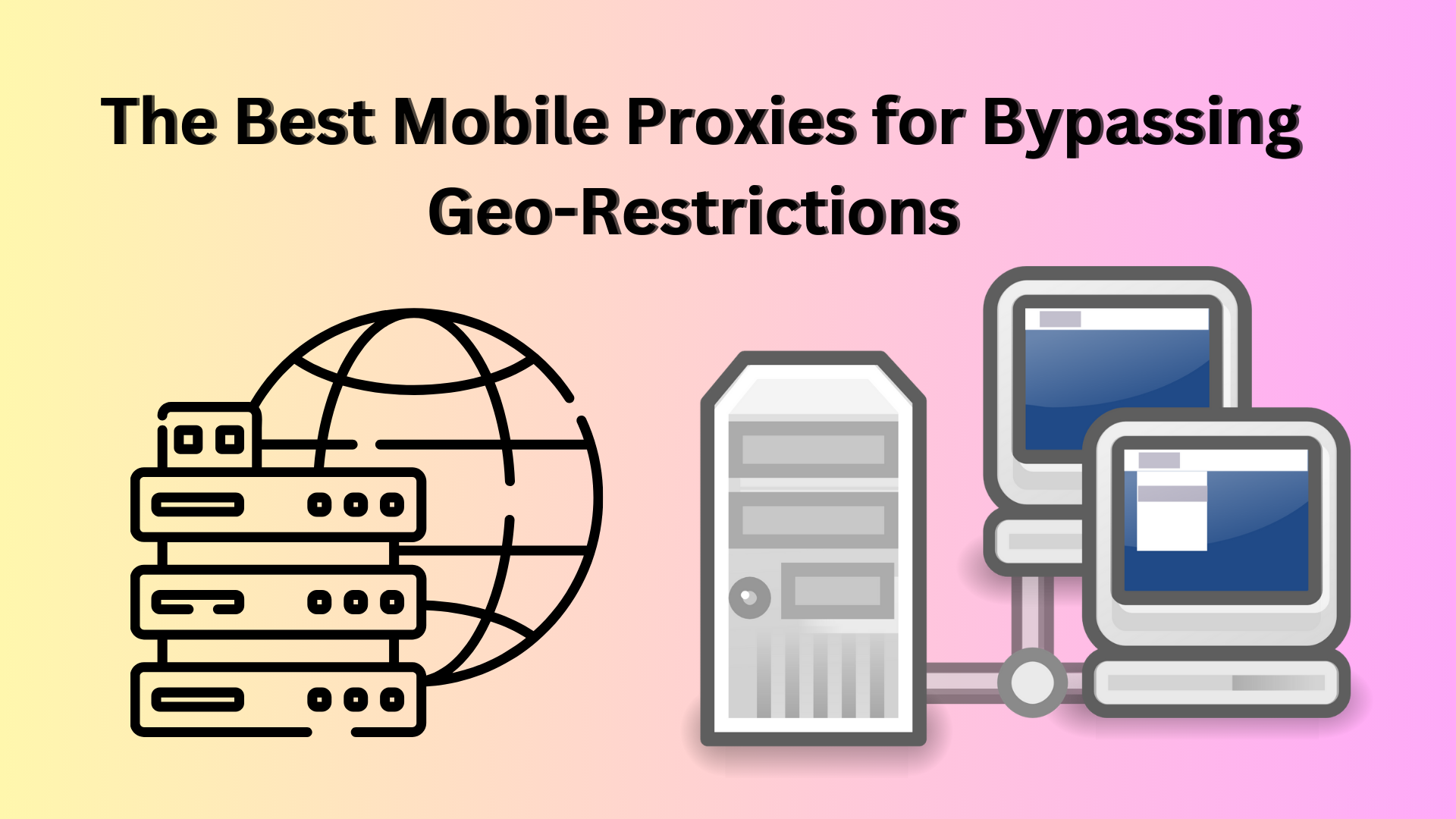n the world of data extraction and analysis, web scraping is a powerful tool that businesses and researchers rely on to gather insights and information from various online sources. However, large-scale web scraping presents unique challenges, particularly when it comes to avoiding detection and managing IP-related issues. This is where mobile proxies come into play. In this article, we’ll delve into the benefits of using mobile proxies for large-scale web scraping, explore how they work, and provide practical tips for leveraging them effectively.
What Are Mobile Proxies?
Definition and Functionality
Mobile proxies are specialized types of proxies that route your internet requests through mobile networks rather than traditional data centers. Essentially, they make it appear as though your web requests are coming from a mobile device connected to a cellular network.
How They Differ from Other Proxies
Mobile proxies stand out from other types of proxies, such as residential and data center proxies, due to their unique IP addresses and connection methods. While residential proxies use IP addresses assigned to homes, and data center proxies use IP addresses from data centers, mobile proxies leverage IP addresses assigned by mobile carriers.
Why Mobile Proxies Are Ideal for Web Scraping
Avoiding IP Blocks and Rate Limiting
Websites often employ measures to block or limit access from IP addresses that make too many requests in a short period. Mobile proxies help mitigate this issue because the IP addresses are frequently rotated and come from a large pool, reducing the risk of blocks and rate limiting.
Mimicking Real User Behavior
Mobile proxies are more effective at mimicking real user behavior compared to other proxies. This is because mobile IP addresses are naturally distributed and have a lower likelihood of being flagged as suspicious. As a result, they are less likely to be detected and blocked by websites.
Geographical Targeting
Mobile proxies allow you to target specific geographic regions more effectively. This can be particularly useful for scraping data from region-specific websites or services that restrict access based on location.
Setting Up Mobile Proxies for Web Scraping
Choosing a Mobile Proxy Provider
Selecting a reliable mobile proxy provider is crucial for successful web scraping. Look for providers that offer a large pool of IP addresses, high uptime, and good customer support. Some popular providers include Luminati, ProxyMesh, and SOAX.
Configuring Your Scraping Tool
Once you’ve chosen a mobile proxy provider, you need to configure your web scraping tool to use the mobile proxies. Most scraping tools and frameworks allow you to specify proxy settings, including the IP address, port, and authentication details.
Handling Authentication
Some mobile proxy services require authentication. Ensure that you configure your scraping tool to handle this, either by entering credentials directly into the tool or by using a proxy manager that handles authentication for you.
Best Practices for Using Mobile Proxies
Rotating Proxies
To maximize the effectiveness of mobile proxies, implement proxy rotation. This involves frequently changing the IP addresses used for your requests to avoid detection and minimize the risk of blocks.
Monitoring Performance
Regularly monitor the performance of your web scraping operations. Track metrics such as request success rates, response times, and error rates. This will help you identify any issues related to proxy performance and make necessary adjustments.
Adhering to Website Terms of Service
Always respect the terms of service of the websites you’re scraping. Some websites explicitly prohibit scraping activities, and violating these terms could result in legal consequences. Ensure that your scraping activities comply with legal and ethical standards.
Challenges and Solutions
High Cost of Mobile Proxies
Mobile proxies can be more expensive than other types of proxies. To manage costs, consider using a tiered proxy plan that fits your budget and scraping needs. Additionally, optimize your scraping strategy to reduce unnecessary requests.
Potential for IP Blacklisting
Even with mobile proxies, there’s a risk of IP blacklisting if websites detect unusual activity. To mitigate this, use a combination of strategies such as rotating proxies, respecting request limits, and implementing delays between requests.
Case Studies
E-commerce Price Monitoring
A major e-commerce company used mobile proxies to monitor competitor pricing across multiple regions. By leveraging mobile proxies, they were able to gather accurate pricing data without being blocked by competitors’ websites.
Travel Fare Aggregation
A travel fare aggregator utilized mobile proxies to scrape flight and hotel prices from various travel websites. The use of mobile proxies allowed them to gather comprehensive data from different locations without encountering rate limits.
Future Trends in Mobile Proxies and Web Scraping
Advancements in Proxy Technology
The proxy industry is continually evolving, with advancements in technology improving the performance and reliability of mobile proxies. Expect to see innovations that enhance proxy rotation, authentication methods, and geographic targeting capabilities.
Integration with AI and Machine Learning
Mobile proxies will increasingly be integrated with AI and machine learning technologies to improve scraping efficiency and accuracy. These advancements will enable more sophisticated data extraction techniques and better handling of complex websites.
Conclusion
Mobile proxies offer a powerful solution for large-scale web scraping, providing enhanced anonymity, reduced risk of detection, and better geographical targeting. By understanding how to effectively use mobile proxies and following best practices, you can improve your web scraping operations and gather valuable data with greater efficiency.
FAQs
1. What are the main advantages of using mobile proxies for web scraping?
Mobile proxies provide better anonymity, reduced risk of IP blocking, and improved geographical targeting compared to other types of proxies.
2. How do mobile proxies differ from residential and data center proxies?
Mobile proxies use IP addresses assigned by mobile carriers, while residential proxies use home IP addresses and data center proxies use IP addresses from data centers.
3. Are mobile proxies more expensive than other types of proxies?
Yes, mobile proxies are typically more expensive than residential and data center proxies due to the cost of maintaining mobile IP addresses.
4. Can I use mobile proxies for all types of web scraping activities?
Mobile proxies are suitable for most web scraping activities, but it’s important to ensure compliance with the terms of service of the websites you’re scraping.
5. How can I choose the best mobile proxy provider?
Look for providers that offer a large pool of IP addresses, high uptime, reliable customer support, and a good reputation in the industry.

